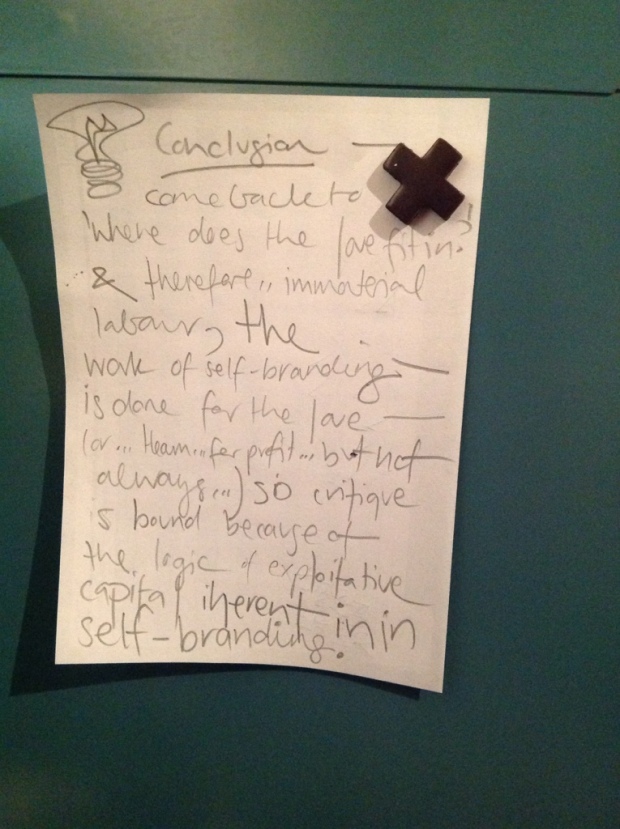Here are some current practices in an Australian university that are ostensibly meant to produce efficiency and productivity, but don’t.
1. Casual teachers need to re-apply to be on a Casual Teaching Register every semester (or session). This involves submitting a relevant academic CV, filling out an Expression of Interest form with duplicate information on it, and providing evidence of evaluation or feedback on their teaching.
This is inefficient because it is repeated every session. It is also inefficient because the printing, scanning, and uploading involved are tedious, particularly when hustling work without an office, printer, or photocopier.
*Please, make or accept electronically completed forms, and accept digital signatures or the applicant’s name as sufficient*.
This process is also tedious and inefficient because when faculties and departments merge (due, no doubt, to increasing efficiency), the process, for some mysterious reason, needs to be repeated. As does providing a copy of qualifications and photo ID.
*Really, can we take a photo of our licence on our device and email it to you? Dropbox? What is truly efficient here?*
The history of employment with the very same unit, often teaching the same, or similar subjects, for the same, or similar people, does not bear on the need to repeat this process. This is inefficient. And demoralising.
Finally, this repeated process is inefficient because it does not seem to bear on the decision-making process of being employed as a casual tutor, which often happens 9 months after each of these Expression of Interest rounds (at my University you submit these applications mid-year to be on the register for the next teaching year, which begins in March).
Clearly, much can happen in 9 months for a precariously employed academic: pregnancy, childcare, submitting a PhD, still not submitting a PhD, a house move, a new partner, a break up, finding other work. And much can happen in a school in terms of lecturer and subject co-ordinator allocation, and of course, enrolment numbers. In my experience, no matter what paperwork has been submitted, there is always a last minute tussle (and often, panic) to find casual teachers. Right up until, and including, when classes start. Indicating availability, and indeed, discipline strengths, 9 months prior does not always bear on what happens when people are in panic mode.
The part of the decision making process, about how many classes are running, and who is approved to teach them, is fairly opaque from the casual perspective, making the business of whether I am the most qualified for the job inconsistent, to say the least. It is highly de-motivating if the rationale for submitting duplicate paperwork is invisible.
2. Short contracts (technically ‘authorities’ to be paid a certain amount, with no guarantee) are clearly key to the efficiency agenda. Shave off any unnecessary hours and benefits and employ tutors, research assistants and generally helpful PhD students in a piecemeal fashion. The logic is clear. Until, perhaps, you consider how many of these contracts can be given to the same person, and the administrative toil involved in hiring, processing hours, extending the amount of hours, re-hiring, etc.
I am currently on Job No. 27 for my Workplace. 27 times of being sent the contract in the mail. 27 times returning it in the mail or by driving, paying for parking, returning the contract. 27 times waiting to hear if I am offered more hours than the ‘basic’ contract, which for teaching is one or two hours a week. And for each of those jobs, calculating my pay, budgeting what that will mean for my life, bills and rent, and what else I will have to hustle.
However, it is not just the casual academics who provide unpaid administrative labour. The finance and human resources teams also field the confused emails from sessionals about claiming pay, send out the mountains of paper contracts each session, put more Job Numbers and allocations into the system, approve the pay claims each fortnight. Some of this is automated, yet, in my experience, there are still many administrative hours (these ones paid) spent on the rigmarole of short contracts. Our friends, the full time academics, are also involved in signing off and approving these contracts for teaching or research assistance.
These are two small examples of inefficiency which actually include a significant amount of administrative hours, both paid and unpaid. (Clearly, there is potential for research here to find out how much labour we are speaking of, which could include administrators’ and lecturer/subject co-ordinator hours).
A suggestion? Permanent part-time. Two, or even one-day-a-week positions. That could go through summer. That could mean that adequate preparation, evaluation and consolidation is done for the teaching that occurs. That means that a research assistant is at hand for the school. To catch all of those pieces of student and teacher feedback and suggestions and to work on them and help make them happen.
It’s telling, really, that this seems at once luxurious and too much to ask, and like asking for a paltry crumb. Still, it’s the suggestion that I have at the moment. I look forward to hearing other ideas.
(And productivity? Even though I have high standards for my work as a teacher, assistant, and researcher, any incentive to be generous and productive in my allotted hours is eroded with each duplicate form or precarious offer of one hour work a week).


